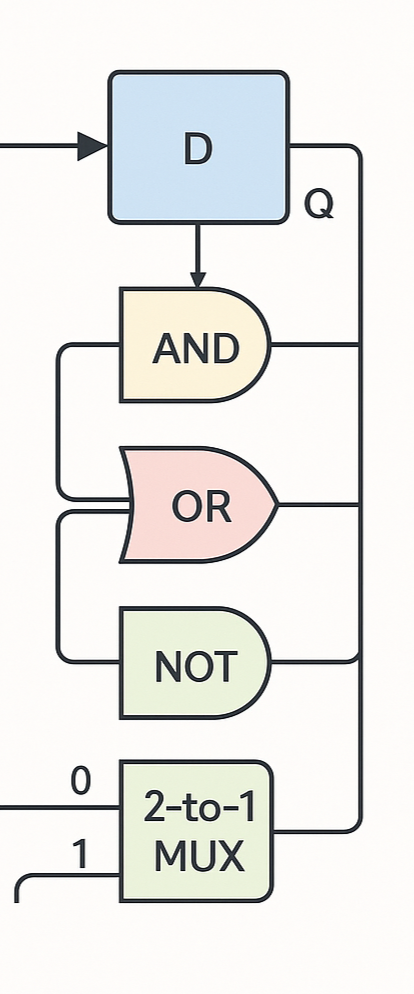🏗️ What is Synthesis? #

Synthesis is the process of transforming RTL Verilog code into a gate-level netlist that can be mapped onto physical hardware (FPGA or ASIC).
🔧 What happens during synthesis: #
- Converts
always/assignlogic into gates and flip-flops. - Resolves parameters and logic expressions.
- Applies optimization for area, speed, and power.
⚠️ Constructs to Avoid in Synthesizable Code #
| Construct | Why It’s Problematic | Use Instead |
|---|---|---|
initial block |
Not supported in synthesis | Use reset logic |
#delay |
Simulation-only delay | Use clocked always |
$display, $monitor |
Not synthesizable | Use in testbenches only |
for, while (variable bound) |
May not converge | Use generate with fixed range |
| Dynamic memory | Unsupported in hardware | Use fixed-size arrays |
🎨 How RTL Coding Style Affects Synthesis #
✅ Good Practices: #
- Use
always @(posedge clk)+<=(non-blocking) for sequential logic. - Use
always @(*)+=(blocking) for combinational logic. - Fully assign outputs to avoid unintended latches.
- Keep sensitivity lists complete or use
(*).
❌ Bad Practices: #
- Mixing
=and<=in the same block. - Partial assignments → inferred latches.
- Using simulation-only constructs in synthesizable code.
❗ Example: Unintended Latch Inference #
always @(*) begin
if (en)
y = a; // Latch inferred if en is false
end
✅ Corrected version:
always @(*) begin
if (en)
y = a;
else
y = 0;
end
🔁 Summary Table #
| Topic | Behavioral Sim | Gate-Level Sim | Synthesis |
|---|---|---|---|
| Simulation speed | Fast | Slow | N/A |
| RTL constructs | Allowed | Flattened | Synthesizable |
| Timing modeling | Approximate | Accurate | Deterministic |
| Usage | Functional test | Final verification | Netlist generation |
| Delay support | Yes (#) |
Yes (SDF) | No |

